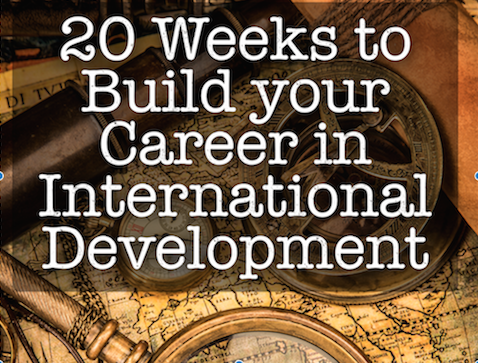What Recruitment Officers Really Look for

When I was beginning my career at the Red Cross, I read this amazing article on what recruitment officers really look for and it as true today as it was in 2006. Now, since it Aidworkers network disappeared – if anyone knows why, please let me know – I am posting it again, so the article will live on.
What Recruitment Officers Really Look for
by Piero Calvi-Parisetti, 07/11/2006
———————————————————–
Some Home Truths
Many candidates interested in working in international development and emergency aid are convinced that finding a job in this sector is just a matter of knowing the right people inside organisations and getting recommendations from them. This is absolutely not the case. Many others think that if they get the right kind of education – a master’s degree in a relevant subject, for instance – they they automatically qualify for a job as aid worker. This is not true either.
It’s difficult to board a moving train, but once you’re on, you can move easily from one car to another. That’s what it’s like in relief and development. The key can be summarised in one word: experience.
Experience rules
The extraordinary importance recruiters inside international organisations give to experience is also the reason why good education is not a guarantee of employment in the sector. It is not an exaggeration to say that, when considering a CV, a recruiter looks first a foremost (and almost exclusively) for experience: how long the candidate has been in the field, regardless of the specific positions. Then, and only then the recruiter considers what the candidate has been doing, what kind of organisations s/he has been working for, the job titles and so on. By and large, these two criteria “make or break” the success of an application. Education, especially lor low to mid-level positions in the field, is much less important.
It is not difficult to see why recruiters are so obsessed with experience. Recruiting an international aid worker is a lengthy and expensive process, often carried out by organisations that are constantly “budget challenged”. The last thing a recruiter wants to do is to go through the recruitment process and send the successful candidate to the field, just to have him/her returning home after a few weeks with some sort of psychological crisis, problems adapting to the new environment, or simply seriously frustrated.
Let’s face it – aid work is not for everybody, and you need more than strong motivation and good qualifications. The recruitment officer has only one way to make sure that you are “the right stuff” and that is the fact that you have done this before, that you “survived” and that you had a good enough experience that you want to do this again.
This may sound very frustrating to those who have not yet boarded the train. How do I get the experience organisations ask of me if I can’t get to work for the very organisations which can provide me with that experience?
Nonetheless, you must keep in mind that organisations do not succeed in meeting all their personnel needs and a large job market is there, constantly creating hundreds of vacancies. With solid motivation, you should not be discouraged: building the necessary experience is not impossible.
In a future article I intend to review the many possibilities offered in the field of unpaid voluntary work, which are an excellent way to prepare for future employment in this sector. A period of overseas volunteering is a great stepping stone for accessing: (a) semi-professional positions, meaning paid volunteer work offered by a great many organizations; and (b) professional positions, which specifically require previous experience in developing countries.
If you’re after a field-based aid worker job, investing some USD 5,000 of your own finances to cover the expenses for a year of overseas volunteering is an incomparably better choice than investing the same amount or more in a Master’s degree course.
About the Author
Piero Calvi-Parisetti works for the GIGnos Institute.
Related: Want to build career in international development? Don’t reach for the UN




